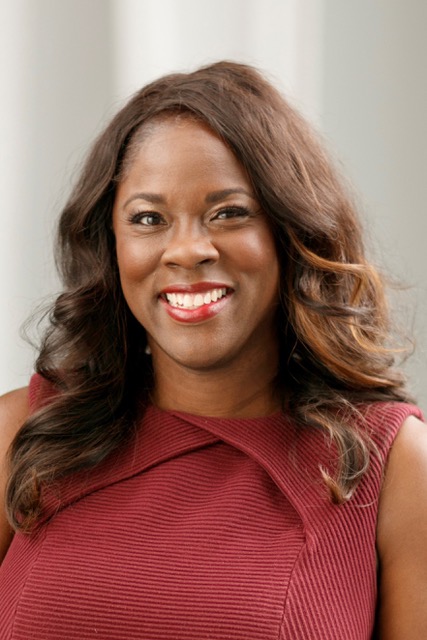- Finally, Bluetooth trackers for Android users that work better than AirTags (and are cheaper)
- Your Samsung Galaxy Watch is about to get a big upgrade for free - try 4 cool new features now
- Cisco Customer Achievement Award Winners Recognized at Cisco Live San Diego 2025
- Your TV's USB port is criminally underrated: 5 features you're not using enough
- T-Mobile will give you a Samsung Galaxy S25 Plus for free - how to qualify for the deal
5 essential skills and traits of a chief data officer

One of the newer members of the C-suite who’s been getting a lot more attention these days is the chief data officer (CDO). That’s because these executives are charged with creating business value from data — something virtually every organization is trying to do today.
Given the importance of these leaders to the success of a company’s data efforts, it’s important to understand what makes a CDO successful. Here are some of the vital skills and traits to look for in a CDO — or to develop yourself in pursuit of this top data exec role.
Data acumen
For a role that actually has the word “data” in the title, the need for a strong sense of the value of data should be fairly obvious. But data acumen in the case of a CDO needs to apply at a broad, strategic level.
Carlos Rivero, VP of data and analytics, GCOM
GCOM
“Data acumen isn’t just about the technologies used to support data-driven decision-making, but also includes an understanding of how the organization’s data should support and enhance its mission,” says Carlos Rivero, vice president of data and analytics at software company GCOM and former CDO for the Commonwealth of Virginia.
“The organization’s business processes generate vast amounts of data; it is the CDO that helps guide the evolution of data from information to intelligence, to support actionable decisions by both the C-suite and operational teams,” Rivero says.
As CDO at financial services provider Truist Bank, Tracy Daniels is involved in data technologies; governance; oversight of the creation, use, and destruction of data; “and creating a data culture that has relevance to every teammate in the bank,” she says. “These responsibilities converge in a holistic operation centered on our clients.”
A CDO “has to be passionate about data,” says Caroline Carruthers, director at consulting firm Carruthers and Jackson and former CDO at transportation company Network Rail. “By that, I mean they have to really be in awe of the power of data and the potential it has, and understand the big picture as well as the day-to-day data operations.”
Insatiable curiosity and a drive to learn and adapt
Technology is constantly evolving, and CDOs need to be curious about the latest developments and how their organizations can leverage these opportunities.

Tracy Daniels, CDO, Truist Bank
Truist Bank
“If there is one thing that shapes the CDO role, it is a constantly shifting and changing environment,” says David Lloyd, CDO at Ceridian, a provider of human resources software. “We need to be demonstrating to our teams and the organization a position of constant learning. We need to create an environment where saying you don’t know the answer is supported, while we work to develop that answer.”
Curiosity is what keeps CDOs constantly looking for more value in data. “You can teach almost anybody about the technical side of data science or the importance of data governance, but what really makes a good CDO is that natural inclination to understand, interrogate, and push the limits of the data they’re working with,” Carruthers says. “Without the desire to want to know more or push data boundaries, a CDO can’t be effective at driving data transformation.”
Along the same lines as the need to be curious and open to learning, CDOs need to be capable of adapting as things change. Being static doesn’t work well in a profession that comes with the need for constant change.
With the volume of new technology emerging, a good CDO should be willing to explore these with the knowledge that there could be failure. Management of unrealistic expectations is also part of the ability to adapt, Lloyd says. “An agile mindset is needed to solve problems, as the application of data to intelligence is not a straight line or formula,” he says. “We are all explorers in many ways, and need to be consistently adapting to the environment.”
Daniels constantly challenges herself and her team to stay on top of changes in the industry. “It’s imperative that we keep a close eye on emerging trends so we can identify those ‘leapfrog’ capabilities or platforms that we can adopt to accelerate value delivery to the business,” she says. “A CDO needs the technical acumen to understand and absorb the technology to apply in response to industry shifts, as well as the change management skills to pivot at a moment’s notice.”
Cross-organizational teamwork and collaboration
Like other key roles in the IT field, CDOs need to work with many other people, whether it be fellow C-suite executives, line-of-business executives, outside experts, and others.

Caroline Carruthers, director, Carruthers & Jackson
Carruthers & Jackson
“Success in the CDO role means engaging with a large group of stakeholders that are all required for ultimate success in transforming data into competitive value and differentiation,” Lloyd says. “From legal to cloud, engineering and sales, a successful CDO needs to create strong relationships across the organization. Working in silos is a recipe for failure.”
CDOs “typically don’t ‘own’ the organization’s data systems, and CIOs, CISOs, and IT directors usually act as gatekeepers to the operational data systems, limiting access to a select few,” Rivero says. “As a result, a CDO must be able to build and maintain relationships with key individuals to facilitate awareness, understanding, access, and integration of data supporting the dissemination of actionable intelligence to the appropriate decision-makers.”
Daniels at Truist also considers collaboration an important skill. “The CDO role touches every area of the organization, and in a large financial services company it requires collaboration at all levels,” she says. “I bridge those conversations, especially between my technology and business peers, as well as the executive team and board, to advance data literacy at all levels.”
Because data is integral to every aspect of a large firm’s operations, “it’s critical for the executive team and the board to understand how data is being used, the state of the data and its quality, and whether the business units that create and use the data are adhering to the bank’s policies,” Daniels says.
Empathetic problem-solving and storytelling
Aside from collaboration, in general CDOs need to be comfortable working with and helping other people. That means possessing attributes such as empathy and the ability to listen to others and care about their interests.

David Lloyd, CDO, Ceridian
Ceridian
“Although a CDO must have a high degree of technical proficiency to get data flowing throughout the organization, the most important attributes are those that engage people in the process,” Rivero says. “Cultivating relationships, engendering trust, and collaborating with key partners to share resources is significantly more important than identifying which data technologies the organization should invest in and how they should be deployed.”
CDOs also need to be problem-solvers. “I love to solve problems — and I started on this career path because I once pointed out a problem at work and then was directed to solve the problem I found,” Daniels says. “In my role as the CDO, I am tasked with helping the business solve problems through data platforms and other data-related technologies.”
This includes piloting and implementing next-generation data platforms, providing dashboarding and visualization tools to all manner of business users, delivering client data systems on which clients’ full relationship is managed, and maintaining these systems with a constant focus on operational stability.
CDOs also need to be good storytellers, Carruthers says. “It sounds a bit odd, but the job of a CDO is so often to bring data to life by turning the numbers on spreadsheets into clear narratives,” she says. “Those who know me know I love to use metaphors to illustrate data stories. But as long as it’s compelling and inspires the rest of your organization, any narrative device will do.”
Risk and governance expertise
Much is at stake when it comes to data security, privacy, and accuracy, and CDOs need to be able to constantly assess risk.
“This quality cannot be understated in the role,” Daniels says. “Robust programs to protect and manage the data are imperative, and as such it’s top-of-mind for me and my team. Our clients expect us to use data to improve our ability to service them, and they have an equal expectation that we are protecting that information, respecting their privacy, and keeping their information out of the hands of bad actors.”
These expectations underscore why balancing the “offense and defense” around data is paramount, Daniels says. “As we look ahead, privacy and security expectations will intensify by both clients and regulators,” she says. “It is key for CDOs to understand that the regulatory environment and subsequent industry impact can rapidly change, and we must adapt quickly.”
It is also critical that CDOs work with their peers and data owners to make sure they understand and are willing to participate in data governance activities, Rivero says. “Getting everyone’s participation engenders trust, facilitates data sharing, and generates actionable intelligence,” he says.
This supports a virtuous cycle of continuous improvement, where insights generated help improve the organization’s services iteratively, creating better data with each progressive cycle, Rivero says. “This cycle also helps to mitigate the operational data silos common within all organizations,” he says. “These personal connections can’t be mandated, but should be cultivated by the CDO guided by a common interest — to improve the outcomes experienced by the organization’s stakeholders.”

